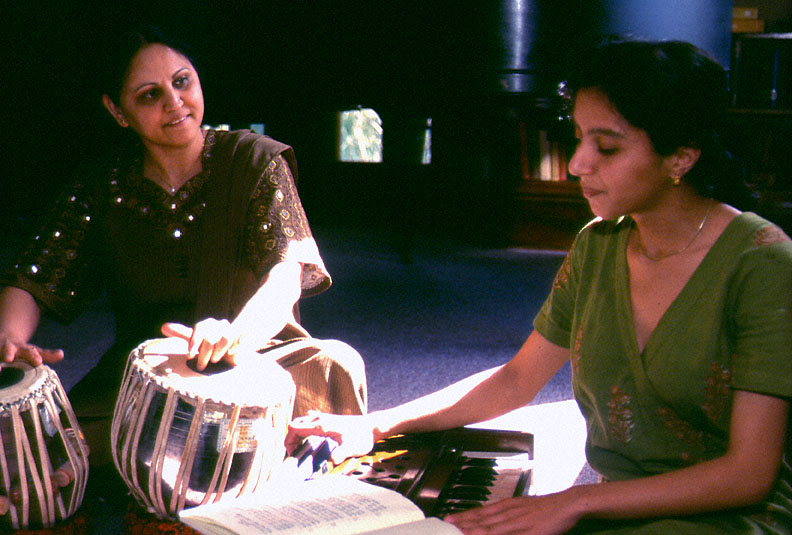- Catalog No. —
- S 2-2824
- Date —
- November 28, 1997
- Era —
- None
- Themes —
- Arts, Folklife
- Credits —
- Oregon Historical Society Folklife Program
- Regions —
- Portland Metropolitan
- Author —
- Leila Childs
Rajasthani Folk Music
This photograph of Dr. Nisha Joshi, on left playing the tabla, and apprentice Shareen Joshi, singing and playing the harmonium, was taken by Folklife coordinator Leila Childs on November 28, 1997 from within the music building at Reed College in Portland. At the time, Dr. Joshi was teaching Rajasthani folk music to Shareen as part of the Traditional Arts Apprenticeship Program of the Oregon Historical Society Folklife Program.
Dr. Joshi was born in Jodhpur, Rajasthan, in the northwestern part of India, in 1953. She began studying Indian classical music at the age of six and started performing on stage at the age of ten. Before moving to the United States in 1984, she was an accomplished Rajasthani folk musician and had earned a Ph.D in Indian classical music from Delhi University. Dr. Joshi relocated to the Pacific Northwest in 1987 and is a regularly featured performer at local festivals, concerts, and other special celebrations. She is currently teaching North Indian voice, sitar, raga/tala at Lewis and Clark College in Portland.
Rajasthani folk music is primarily made up of fairly simple three and four-note songs. The songs reflect feelings about love, family, religious and/or spiritual devotion, seasonal passages, festivals, legends, and folktales. Although Indian classical music is more complex―using up to twelve notes counting sharps and flats―and has strict rules governing improvisation, the two music styles are interrelated. According to Dr. Joshi, “I like folk music but classical music is like you are meditating you can just sit and improvise and forget about everything. Nowadays, life is just run, run, run. Music is for spiritual development.”
Written by Joshua Binus, © Oregon Historical Society, 2005.
